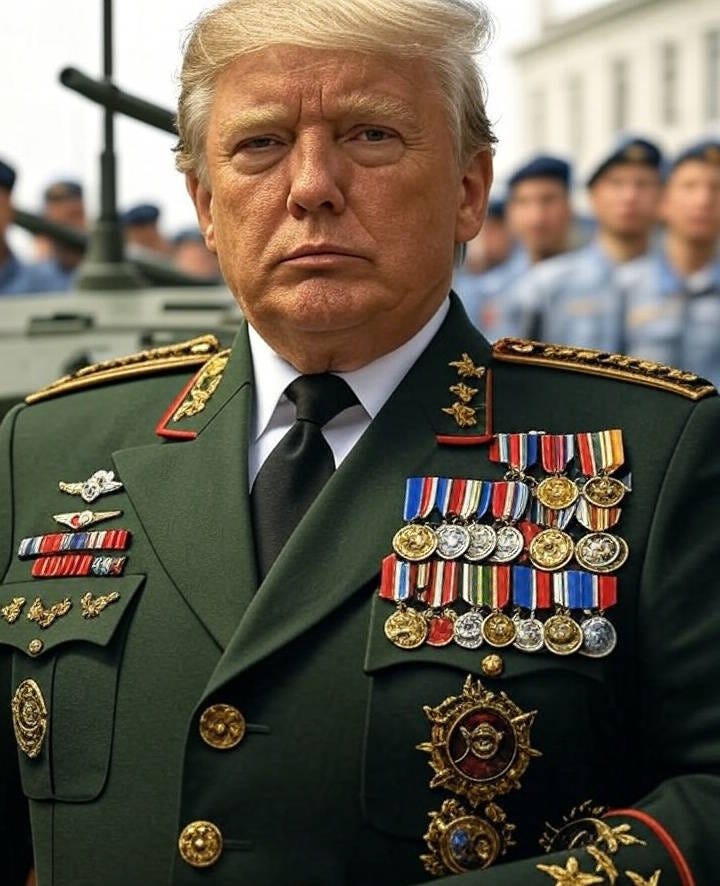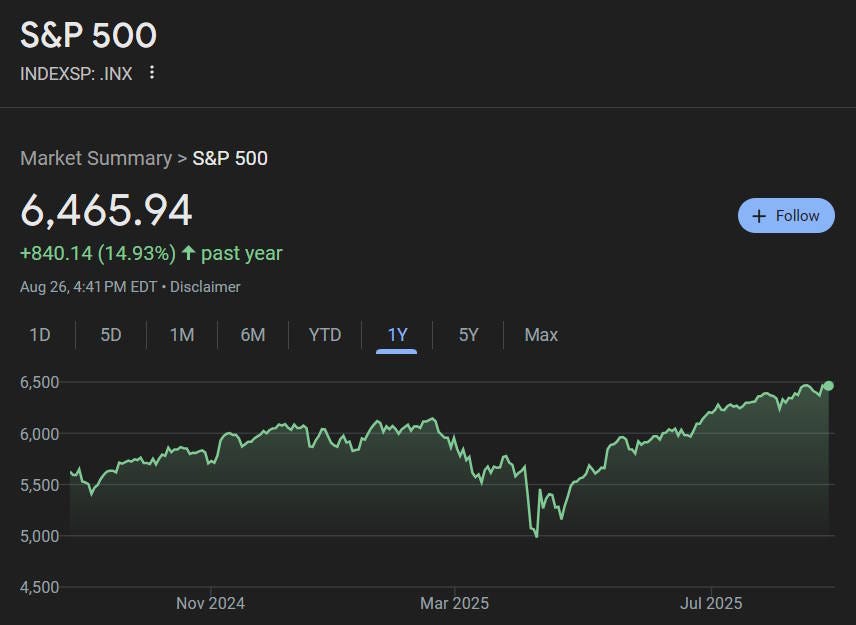The richest third-world country
How long before America's dysfunctional politics start hurting its economy?
The other day a friend asked me whether it made sense to call America “the richest third-world country”. I’ve been hearing people ask similar questions for decades, and before, I always thought they were a bit silly and histrionic. Yes, the U.S. has dirty and run-down inner cities, high crime rates, and crappy public transit. But the average American lives in sprawling suburban comfort that only the wealthy of other developed countries can attain. America has chosen a different lifestyle and development pattern than France or Japan, but at the end of the day its middle class is still much richer.
But nowadays, when people call the U.S. a “third world country”, I find myself taking the epithet much more seriously. American politics is starting to look decidedly like something you’d encounter in a dysfunctional middle-income nation — Turkey, Hungary, Brazil, or Israel. Like in those countries, a populist strongman won power through democratic means, and then proceeded to usurp unprecedented power to the executive, often through open clashes with the country’s key institutions.
Consider a partial list of things that Donald Trump has done in just the last couple of weeks:
Although violent crime in the U.S. is at a 20-year low (and near the all-time lows from the early 1960s), Trump declared a crime emergency, and called the National Guard to patrol the streets of Washington D.C. and Los Angeles. He’s now planning to replicate these military deployments in other cities across the country, as well as creating special Guard units and rapid reaction forces to carry out domestic policing duties. So far, the guardsmen have been patrolling low-crime areas instead of high-crime ones, and have not been making arrests; instead, they’re just walking around with automatic weapons. It’s pretty clear that this is not really an anti-crime operation, but a show of force — a threat against potential civil unrest, and an attempt to intimidate the educated progressive residents of Democratic-leaning cities.1
Trump struck a major blow against the independence of the Federal Reserve, by firing Fed governor Lisa Cook. The President is only allowed to fire Fed governors “for cause”, which typically means some sort of malfeasance. Trump justified his firing of Cook by accusing her of mortgage fraud; this may not hold up in court, but in the meantime, Cook will not be working, which demonstrates Trump’s power over the Fed. The clear goal of the firing — besides getting rid of someone whom Trump’s people consider an unqualified DEI hire — is to allow the President to bully the Fed into carrying out whatever monetary policy he likes.
Trump used CHIPS Act funding and other government money to buy a significant stake in Intel. This came after Trump had publicly demanded that Intel’s CEO resign; the deal appears to have been a way to mollify Trump’s anger. Meanwhile, a Trump advisor declared the administration’s intent to take stakes in many more companies.
Trump issued an executive order to arrest and prosecute Americans for burning the American flag, despite a standing Supreme Court ruling that protects flag-burning as a form of free speech under the First Amendment. Although Trump’s order acknowledged the SCOTUS ruling, the Secret Service did arrest one man who burned a flag near the White House to protest Trump’s order.
Trump and his Secretary of Defense are conducting a purge of high-ranking military and intelligence officials, including the head of the Defense Intelligence Agency, the head of the NSA, the chief of U.S. Naval reserves, the commander of Naval Warfare Special Command, and others. It’s not clear why this is being done, but it’s probably to ensure ideological conformity and loyalty to Trump among the armed forces and the intelligence services.
Trump’s FBI raided the house of John Bolton, a prominent conservative critic of the President’s Ukraine policy.
The Trump administration is now trying to deport Kilmar Abrego Garcia, the man who was returned to the U.S. after being illegally sent to a prison in El Salvador, to Uganda. (A judge is blocking the move.)
These are just the very latest moves in Trump’s long-running campaign to suppress dissent, assume unprecedented executive power, punish political enemies, ensure personal loyalty, interfere in American business, and push the boundaries of the law. Remember that it’s only seven months into a 48-month Trump presidency; there’s much more of this to come.
As I said, this is the kind of thing that happens, if not in third-world dictatorships, then at least in middle-income countries with populist strongmen. Americans are coming to see Trump as a dictatorial figure. In April, 52% of Americans, and 56% of Independents — along with 17% of Republicans! — agreed with the statement that Trump is a "dangerous dictator whose power should be limited before he destroys American democracy". In fact, a significant number of Trump’s supporters want him to be a dictator.
A big question — other than who might push back on this, and what the consequences of the pushback might be — is whether Trump’s transformation of U.S. politics into a quasi-authoritarian system will hurt the economy. The U.S. is getting Third World politics; will it also get Third World poverty? So far, markets are shrugging off Trump’s latest repressive moves, having recovered from their crash after “Liberation Day” in April:
Investors still appear to be betting that Trump will chicken out of any economic policy severe enough to cause major disruption. But markets can be wrong. Trump’s degradation of American institutions may yet cause economic troubles further down the line, through several different channels.
Let’s start with the one people are talking about today — the danger that Trump will gain personal control of monetary policy




